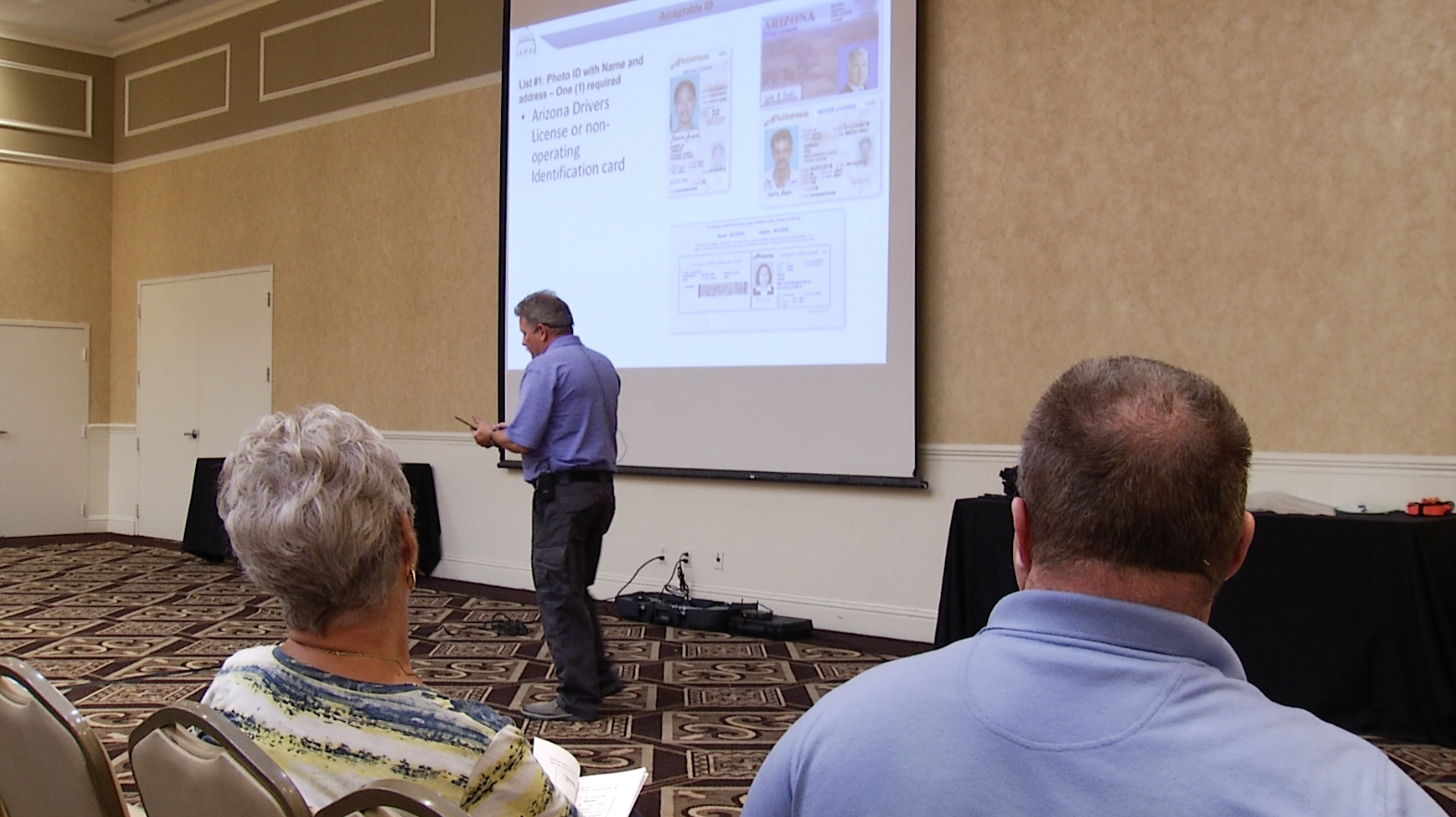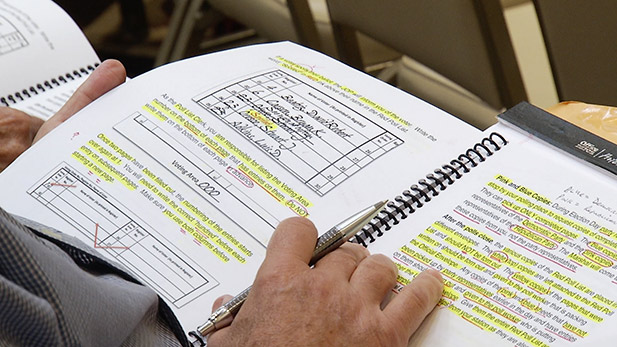
Pima County officials are preparing for the Nov. 8 general election by training hundreds of people to staff polling places.
One day last week, about a hundred people packed a ballroom at the Westward Look resort. Sitting at long rows of tables, they trained for a one-day job in support of a system designed to ensure that voting is free, fair and transparent.
As training coordinator for the Pima County Department of Elections, it’s Michael Dale’s job to make sure poll workers know how to check identification and give voters the right ballot. He shows newcomers and veterans alike how to make sure everything is done by the book.
For example, at a recent training session he gave a tip on how to make sure the polls are opened and closed on time - use a cell phone:
“Please do not use the clocks on the wall at your polling facility as your official time. You'll generally find they're not correct.”
And how to know when to turn people away?
“Everybody who's in that line gets to vote. Anybody who shows up after the announcement has been made that the polls are now closed will have to be politely turned away.”
Around 2,100 people sign up to be part of the polling system, said Elections Director Brad Nelson. That includes inspectors, who run the polling places; judges, who oversee the ballots and signature sheets; clerks, who help check IDs; and marshals, who maintain order.
The judges at any polling place are from opposite political parties, so the Democrat can check the Republican’s work, and vice versa. Any skeptics who think the election might be “rigged” should see the system in action, Nelson suggested.
“I would invite them to come to the polling places on Election Day - as they are voters, not just to walk in to look around - and ask … the poll workers there. They are a mix of political parties, so it's not just Republicans and not just Democrats. That's one of the ways we make it a fair practice within polling places,” Nelson said.
The process is transparent even after the ballots leave the polling place, said Michael Dale, the training coordinator.
“Everything that happens in our counting rooms and in our early board rooms is on videotape and much of it is open. You can go to our website and actually view it online to watch for yourself 24 hours a day.”

The trainees are people who can afford to take a one-day job that rewards their sense of civic pride more than their wallet: retirees, students, the unemployed and stay-at-home spouses. For Melissa McKague, this will be her first time working an election.
“I haven't ever done this before. I'm fairly new to the Tucson area and I was looking for work, and I forgot that I’d even filled out an application with Pima County. And then I got a phone call that said, ‘Are you still looking for work, would you like to work the elections?’” McKague said.
She doesn’t believe there’s any way to rig an election like this, she said, adding that it’s too bad that some people have started to doubt the democratic process.
“It's just disappointing that there's a bad atmosphere around this election that I've never seen in this country. And it makes me sad.”
Some poll workers are expecting a long and busy day on Nov. 8, a day that could run 16 hours and pay up to $160. They’ve been told to bring lunch, maybe something to read, but nothing political.

By submitting your comments, you hereby give AZPM the right to post your comments and potentially use them in any other form of media operated by this institution.